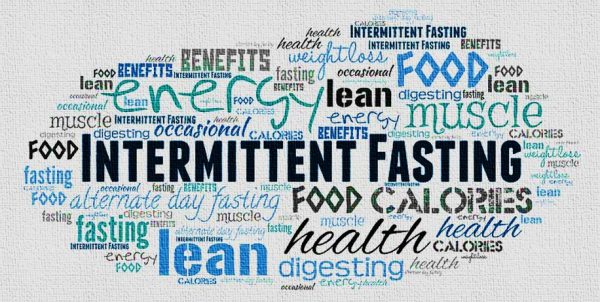
For Type-2 Diabetes Weight Loss Intermittent Fasting Is A Better Option Than Other Diets
In Type -2 diabetes patients an intermittent fasting of 8/16 hours resulted in more weight loss a study shows. These patients who volunteered for the research ate whatever they wanted in 8 hours window (and 16 hours fasting) and lost more weight than the people who cut their calorie intake by 25%.
A study published in JAMA network open revealed that two groups who underwent the test had similar reductions in long term blood sugar levels or in hemoglobin A1C over the past three months. Studies carried out with total of 75 individuals with average age of 55 years old, an average Body mass index of 39, and an HbA1C level of 8.1 percent.
According to Krista Varady, Professor of Nutrition at University of Illinois in Chicago, US “Our findings show that time-restricted eating [also called intermittent fasting] is a good alternative to calorie counting for people who can’t do the traditional diet or are burned out on it. For many people trying to lose weight, counting time is easier than counting calories”.
Time restricted eating is an easy approach and easy to explain for patients than cutting down the calories says Dr. Sun Kim an associate professor at University Medical center in California. There is an increase in number of Type 2 diabetes not just in US alone but elsewhere. If the current trend continues by 2050 in US alone there will be 1 in 3 with this condition.
Weight loss is for better health and is possible with dietary changes, procedures, or medications. This will result in lowering blood sugar levels. However, in some it can also lead to remission of the condition. This is where innovative strategies help patients to achieve healthy weight and to maintain blood sugar levels.
Type – 2 diabetes is manageable through intermittent fasting.
Intermittent fasting is an eating pattern that involves cycling between periods of eating and fasting. Intermittent fasting can be beneficial for weight loss, controls obesity and helps in managing type 2 diabetes.
Here is how intermittent fasting may help with weight loss and diabetes:
1. Weight Loss:
- Caloric restriction: Intermittent fasting often leads to reduced calorie intake because it limits the time during which you can eat. Over time, this caloric restriction can lead to weight loss, if you do not overcompensate by eating excessively during your eating windows.
- Metabolic benefits: IF can lead to favorable changes in hormones and metabolism. For example, it may increase the release of norepinephrine, which can enhance fat burning. Insulin sensitivity also tends to improve.
- Reduction in fat mass: Some studies have shown that intermittent fasting can specifically lead to a reduction in body fat, particularly abdominal fat, which is associated with a higher risk of various health issues.
2. Diabetes Management:
Insulin sensitivity: Intermittent fasting can improve insulin sensitivity, which is beneficial for people with type 2 diabetes or those at risk of developing it. It helps the body use insulin more effectively, which can lead to better blood sugar control.
Blood sugar levels: Intermittent fasting can lead to more stable blood sugar levels by reducing the frequent spikes and crashes associated with continuous eating throughout the day. This can be particularly helpful for individuals with type 2 diabetes in managing their condition.
Reduced insulin resistance: Intermittent fasting has been shown to reduce insulin resistance, which is a common issue in type 2 diabetes. By reducing resistance, the body (cells in muscle, and liver) becomes more responsive to insulin.
Lipid profile improvement: Some studies suggest that intermittent fasting can lead to favorable changes in lipid profiles, including lower triglyceride levels and improved cholesterol ratios, which are important for heart health, especially in individuals with diabetes.
Weight management: Weight loss associated with intermittent fasting can contribute to better management of type 2 diabetes, as excess weight is a risk factor for the condition.
Most of the available research shows that intermittent fasting can help people lose body weight and lower their levels of fasting glucose, fasting insulin and leptin while reducing insulin resistance, decreasing levels of leptin and increasing levels of adiponectin. Certain studies found that some patients practicing intermittent fasting with supervision by their doctors were able to reverse their need for insulin therapy (Hopkins Medicine)
It is important to note that while intermittent fasting can be effective for many people, it may not be suitable for everyone. Some individuals, such as those with certain medical conditions or a history of eating disorders, should approach intermittent fasting with caution. Additionally, results can vary with specific fasting method -16/8 method, 5:2 method, alternate day fasting. It is important to find an intermittent fasting routine that fits one’s lifestyle and health goals. Before commencing intermittent fasting or before making any significant change in the diet, it is better to consult your doctor. Your doctor may recommend to talk to a nutritionist who can guide you to your specific needs and help you monitor progress.
References:
https://www.everydayhealth.com/
https://www.hopkinsmedicine.org/
Image credit: Intermittent Fasting by http://www.epictop10.com/ (CC by 2.0)
(https://www.flickr.com/photos/182229932@N07/48655008176)
Author: Sumana Rao | Posted on: November 1, 2023
« Breast Cancer Chemotherapy Drugs And Preventive Action Whole30 Diet Principles, Pros And Cons »






















Write a comment